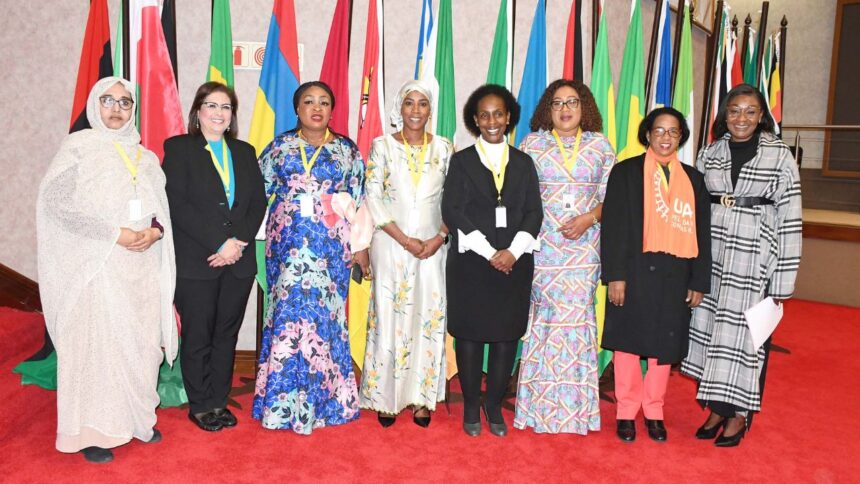Parliament Urges Bold Action for Gender Equality Across Africa. South Africa’s Parliament has taken a resolute stance on accelerating gender equality and women’s empowerment across the African continent.
During a high-level G20 special engagement in Johannesburg, a powerful message was echoed by South African leaders in collaboration with the Pan-African Parliament (PAP), especially among women and young parliamentarians. The gathering emphasised the urgency of shifting beyond policies and declarations, calling for practical, systemic change led by African voices.
Dismantling Colonial Legacies in Policy
Refilwe Mtshweni-Tsipane, Chairperson of the National Council of Provinces, set the tone with a compelling plea for African lawmakers to lead an “epistemic shift.” She challenged delegates to uproot colonial ideologies that continue to shape African public policy and legislative priorities. Her call for reform wasn’t merely about policy—it was about transforming legislative structures to reflect values of equity, dignity, and reparations.
“Parliamentary diplomacy must be used not to mimic old power, but to dismantle the logics of exclusion—logics that sort bodies by race, gender and class,” said Mtshweni-Tsipane.
This pivotal perspective positions the Pan-African legislative leadership as a critical player in reframing Africa’s policy direction in a way that affirms the lived experiences of its women and girls.
Africa’s Time to Lead on the Global Stage
As the G20 Parliamentary Speakers’ Summit (P20) approaches in October 2025, South Africa will step into a leadership role under its G20 Presidency. Mtshweni-Tsipane called on young and female African parliamentarians to rise to this global moment by advocating for gender justice, feminist solidarity, and people-centred development reforms. Her message: Africa must speak with one bold, united voice.
“The rights of women and girls cannot live on paper alone,” she declared. “They must be seen in courtrooms, in clinics, in classrooms and in every village across Africa.”
This challenge underlines the importance of shifting from ratification to realisation—transforming signed agreements and policy frameworks into visible, measurable results in communities.
From Policy to Practical Implementation
Despite the existence of gender-focused frameworks and initiatives across Africa, implementation remains fragmented. Dr Annelie Lotriet, Deputy Speaker of the National Assembly, echoed the need for political will and action.
“The frameworks are in place, the statistics are known, and what remains is deliberate and determined action,” said Dr Lotriet.
This statement reflects a core issue within gender equality work: the gap between policy creation and practical application. It’s no longer enough to have policies in documents—communities across Africa need to feel the impact in real time.
Role of the G20 P20 Summit in Gender Equality
The G20 Parliamentary Speakers’ Summit (P20) will serve as a significant platform for global collaboration. With South Africa at the helm, this summit brings together Speakers and Presiding Officers from G20 member countries, making it a powerful space for parliamentary diplomacy. The summit focuses on:
| Key Focus Areas of P20 Summit 2025 | Objectives |
|---|---|
| Gender Equality | Promote actionable solutions to close gender gaps |
| Inclusive Growth | Ensure fair access to resources and opportunities |
| Democratic Governance | Strengthen institutional integrity and accountability |
| International Parliamentary Cooperation | Build lasting partnerships to address global challenges |
This historic platform presents a golden opportunity for African leaders to shape global policy and ensure that gender equity becomes a lived reality—not just a policy promise—for women and girls.
Why Gender Equity Cannot Wait
The call from Parliament highlights an essential truth: gender inequality is deeply structural. From wage gaps and underrepresentation in leadership, to access to education and health services, African women continue to face systemic barriers.
Current Challenges Faced by Women in Africa
| Challenge | Impact on Gender Equality |
|---|---|
| Limited representation in politics | Fewer women influence legislative decisions |
| Unequal access to education | Limits future employment and leadership |
| Gender-based violence | Undermines safety and participation |
| Economic marginalisation | Higher poverty rates among women |
| Healthcare inequalities | Poorer maternal and reproductive health outcomes |
To address these challenges, African parliaments must prioritise accountability, monitoring, and budgeting for gender-responsive policies.
South Africa’s Leadership
South Africa’s legislative leadership in gender transformation positions the country as a regional beacon. The integration of gender equity into parliamentary diplomacy signals that African countries can define their own future, independent of legacy constraints.
Moreover, through the P20 Summit and platforms like the Pan-African Parliament, African nations can collectively advocate for:
- Investment in women’s education and leadership
- Zero tolerance policies on gender-based violence
- Gender-responsive budgeting
- Legal reforms to support sexual and reproductive rights
- Inclusive employment policies for young women
Conclusion
The message from Parliament is clear: Africa must rise to the challenge of gender transformation. The upcoming G20 P20 Summit 2025 provides an unprecedented opportunity to turn policy into power, and declarations into daily realities for millions of African women and girls.










